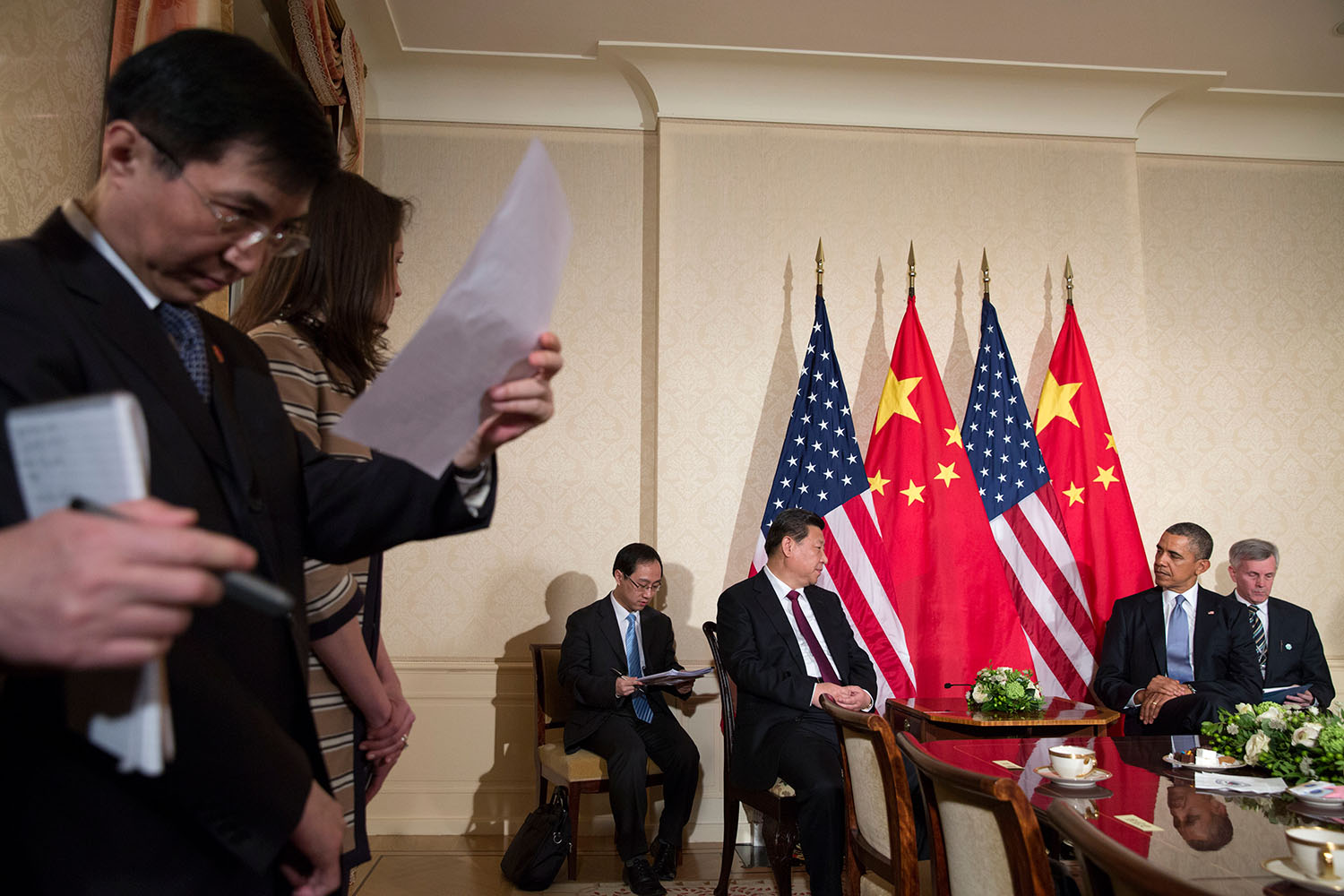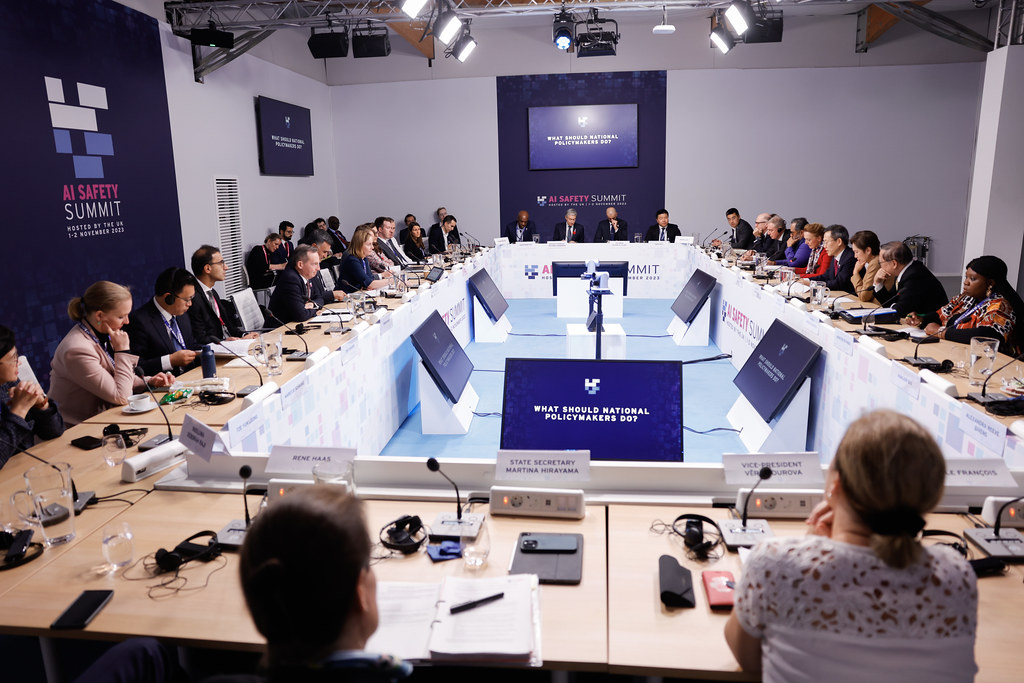Assessing the South China Sea Arbitral Award after One Year: Why China Won and the U.S. is Losing
A year ago today, an arbitral tribunal formed pursuant to the United Nations Convention for the Law of the Sea issued a blockbuster award finding much of China’s conduct in the South China Sea in violation of international law. As I detailed that day on this blog and elsewhere, the Philippines won about as big a legal victory as it could have expected. But as many of us also warned that day, a legal victory is not the same as an actual victory.

Published by The Lawfare Institute
in Cooperation With

A year ago today, an arbitral tribunal formed pursuant to the United Nations Convention for the Law of the Sea issued a blockbuster award finding much of China’s conduct in the South China Sea in violation of international law. As I detailed that day on this blog and elsewhere, the Philippines won about as big a legal victory as it could have expected. But as many of us also warned that day, a legal victory is not the same as an actual victory.
In fact, over the past year China has succeeded in transforming its legal defeat into a policy victory by maintaining its aggressive South China Sea policies while escaping sanction for its non-compliance. While the election of a new pro-China Philippines government is a key factor, much of the blame for China’s victory must also be placed on the Obama Administration.
First, some background. As Chris Mirasola and I have detailed in several posts here at Lawfare, China has only taken one meaningful act in the past year that brings it closer to compliance with the arbitral award. In November, China began allowing Philippine fisherman to fish near and around the Scarborough Shoal, which complied with the arbitral award’s recognition of those fishermen’s traditional fishing rights there. But on every other measure, China has continued to defy the award, especially by maintaining artificial islands on reefs which the tribunal ruled give China no maritime legal entitlements.
International law seldom enforces itself, and even the reputational costs of violating international law do not arise unless other states impose those costs on the law-breaker. Both the Philippines and the U.S. had policy options that would have raised the costs of China’s non-compliance with the award. But neither country’s government chose to press China on the arbitral award.
For instance, the Philippines could have sought regional and international support for demanding China’s compliance with the arbitral award. It could have demanded China’s compliance – or at least continued to emphasize its rights under the award – during ASEAN meetings and in bilateral talks with China. It could have raised the award at the UN General Assembly as well as during meetings of state-parties of UNCLOS. But the new government of Rodrigo Duterte chose to downplay the arbitral award in search of warmer relations with China, especially warmer economic relations.
But even without full support from the Philippines, the U.S. government could have done much more than it did. As I noted last summer here on Lawfare, the U.S. could and did try “diplomatic shamefare” by seeking to win support among other nations, especially Southeast Asian nations, for demanding China’s compliance with the arbitral award. But while the U.S. did make some efforts, its half-hearted diplomacy paled in comparison to China’s energetic diplomatic and global public relations campaign to defend its non-compliance. While US officials held a few conference calls after the award was issued, China’s talented diplomatic corps spent the months leading up to the award blanketing the world’s print, online, and social media with China’s legal positions.
When China is broadcasting videos defending itself on its large screen in New York’s Times Square, a few State Department conference calls on background is just not going to cut it as a response. If the U.S. wanted to use the arbitral award to build support for opposing China’s South China Sea activities, it needed to act early and act big. But then-Secretary Kerry’s State Department didn’t respond effectively, and so China was able to largely avoid any diplomatic consequences from defying the award. As the Asia Maritime Transparency Initiative has detailed here, only 7 countries have called on China to comply with the award, 6 supported China, and the rest have largely remained silent or neutral. Even the normally pro-international-adjudication EU failed to issue a statement calling on China’s compliance.
In September, then-President Obama entered the fray by calling on China to comply with the arbitral award during an interview leading up to the September G-20 summit in Hangzhou China. He also raised the issue directly with Chinese President Xi. With Japan’s support, the G-7 has issued several statements noting the importance of complying with international law in maritime disputes and calling the arbitral award a “useful basis” for resolving the disputes in the region. But none of these statements seemed to have influenced China’s behavior in the least.
For those of us concerned about the impact of President Trump on U.S. influence around the world, we should also remember that even a well-liked, widely-respected (at least in Europe) U.S. president was unable to rally other countries to support a legally binding UNCLOS arbitral award. Moreover, Obama’s frank statements to the Chinese government were simply ignored. Words, even a U.S. president’s words, are not enough to force compliance with international law.
To be sure, it was unlikely China would ever openly comply with the arbitral award. But the U.S. under President Obama and Secretary Kerry missed a huge opportunity to use the arbitral award to impose serious reputational costs on China. A sophisticated global public relations campaign explaining why China really did have a legal obligation to comply with the award would have helped a great deal. But the U.S. could also have taken the opportunity to demonstrate its seriousness by conducting naval operations near and around China’s artificial islands and imposing targeted economic sanctions on Chinese companies and individuals taking actions that violate the arbitral award.
The Trump Administration began such naval operations near China’s artificial islands this spring, and there is some support in Congress for South China Sea sanctions. But both actions would have been much more credible if they had been taken last summer when the arbitral award was still fresh. The Philippines would probably have had to follow the U.S. lead on this, and other countries might of as well. As I explained last summer, President Obama had the authority to do so without Congress, just as he had the authority to impose similar sanctions against Russia after the Crimea annexation.
Such strong, decisive U.S. action could have significantly raised the costs for further Chinese activities in the region and elsewhere. It would have demonstrated to U.S. allies like the Philippines as well as possible future allies like Vietnam that the U.S. was willing to push back against China in a significant way. Even a threat of such sanctions would have been a useful pressure point and perhaps a bargaining chip.
But the Obama Administration ultimately chose a different path. Administration officials, including the President, talked about the award, but did nothing to concretely support the award. This was possibly the worst of both worlds. Looking back after one year, we cannot say (yet) that U.S. policy in the South China Sea is a failure. But we can say that the U.S. under President Obama missed a huge opportunity to change the dynamics in the region in its favor, and it is hard to know whether or when another such opportunity will arise in the future.


.jpg?sfvrsn=f557f72a_4)

